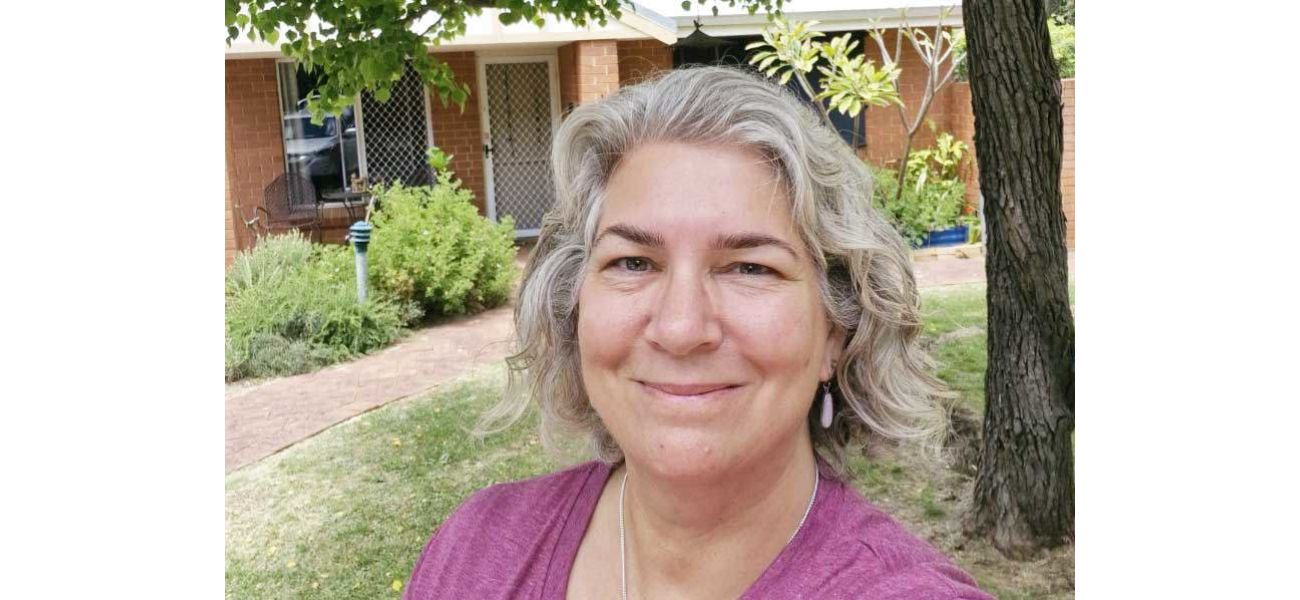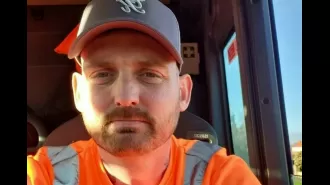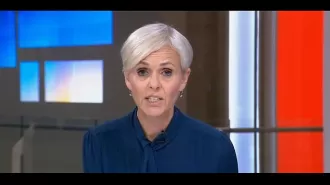After a stroke, Kelly became a part of WA's unseen homeless population.
A Perth mother with five kids had a job and stable rental, but still slipped through the cracks of the system meant to protect her.
November 18th 2024.

Kelly Campbell was just 46 years old when she suffered a sudden stroke and found herself lost in a system that was meant to protect people like her. It was back in 2019 when this Perth mother-of-five had a demanding job running a dementia ward in a nursing home and a stable rental home that she had called her own for almost four years. But then, everything changed. The stroke left her with devastating health effects and made it impossible for her to continue working.
Campbell recalls, "At first, I lost my vision and speech, and my right side mobility. It was a scary and confusing time." Over the next eight months, she was able to regain her sight and speech, but she was left with an acquired brain injury. It was during this time that the owner of her rental home decided to sell the property to take advantage of the COVID housing boom. "The owner wanted to sell in February 2020, but I still had a fixed-term tenancy lease that was supposed to end in July," Campbell explains. "They offered me $800 to help with my moving costs and wanted me to sign a sales agreement."
Feeling uneasy about the situation, Campbell fought to stay in her home. She says, "I was still recovering from my brain injury, and it was hard for me to understand what was going on, but I had a gut feeling that something wasn't right. So, I kept questioning them." Campbell was able to stay in her home until her lease ended, but then she had nowhere to go. At the time, she was still waiting for approval for the Disability Support Pension and support through the National Disability Insurance Scheme (NDIS). She was surviving on Centrelink JobSeeker payments with a medical exemption. "You have to have a disability for two years before you can become eligible for the Disability Support Pension and NDIS, so it was a financial struggle for me," Campbell explains.
She was put on a priority list for community housing, but it took two and a half years for her to finally be offered a home in December 2022. With the uncertainty of her future, Campbell began giving away many of her belongings. "I could see that I was going to be homeless, and my kids were worried sick, telling me, 'Don't be ridiculous,'" she says. After trying to share a home with a friend, which didn't work out, Campbell's son took her in. "My son had a housemate, and his house wasn't really set up for three people, but they were gracious enough to let me stay in their lounge room for almost two years," she says. "I am so grateful to them for taking me in and treating me with respect, but it wasn't where I wanted to be."
Finally, when Campbell was approved for NDIS support, she faced more challenges. For example, an occupational therapist had to visit her temporary home to assess it for necessary modifications. Campbell's breakthrough came when she made a public submission to the Federal Government's Joint Standing Committee on the NDIS during their visit to Perth. "I talked about my experience with the NDIS and how it wasn't working for me. I was homeless," Campbell explains. After her submission, WA Greens Senator Jordon Steele-John reached out to Campbell and offered to help advocate on her behalf. "He said he would support me, and he did. They escalated my case, and that's how I finally got housed," Campbell says.
Today, Campbell lives in a home offered by the Department of Communities in the north-eastern suburb of Bassendean. She wants to share her story to raise awareness for a parliamentary petition calling on the WA Government to declare a State of Emergency on housing and homelessness. The petition, started by homeless advocate Allan Connolly and supported by Greens MLC Brad Pettitt, aims to bring attention to the issue and push the government to take action. Connolly says, "We need to put politics aside and focus on the issue at hand. This is a man-made disaster." He explains that the housing system is broken, with a severe lack of social and affordable housing. In November last year, there were over 34,000 people on the waitlist for public housing in WA, with an average wait time of 138 weeks.
Housing and Homelessness Minister John Carey acknowledges the pressure on housing markets across the country and says, "This is why we are investing a record $3.2 billion in housing and homelessness measures." He adds that they have already added more than 2,550 social homes and have plans for over 1,000 more. However, for Campbell, the struggle was not just about finding a home. She believes that the system is difficult to navigate and many vulnerable people are left without support. "So many people are left behind and fall through the cracks because they don't know how to access the support they need," she says. Campbell also points out that homelessness is not just about rough sleepers, but there are also many 'hidden' homeless people who are slipping under the radar. "There is a huge amount of shame and fear in being homeless," she says. "There are people working full time who are homeless, but they won't tell you because of the stigma attached to it."
Campbell recalls, "At first, I lost my vision and speech, and my right side mobility. It was a scary and confusing time." Over the next eight months, she was able to regain her sight and speech, but she was left with an acquired brain injury. It was during this time that the owner of her rental home decided to sell the property to take advantage of the COVID housing boom. "The owner wanted to sell in February 2020, but I still had a fixed-term tenancy lease that was supposed to end in July," Campbell explains. "They offered me $800 to help with my moving costs and wanted me to sign a sales agreement."
Feeling uneasy about the situation, Campbell fought to stay in her home. She says, "I was still recovering from my brain injury, and it was hard for me to understand what was going on, but I had a gut feeling that something wasn't right. So, I kept questioning them." Campbell was able to stay in her home until her lease ended, but then she had nowhere to go. At the time, she was still waiting for approval for the Disability Support Pension and support through the National Disability Insurance Scheme (NDIS). She was surviving on Centrelink JobSeeker payments with a medical exemption. "You have to have a disability for two years before you can become eligible for the Disability Support Pension and NDIS, so it was a financial struggle for me," Campbell explains.
She was put on a priority list for community housing, but it took two and a half years for her to finally be offered a home in December 2022. With the uncertainty of her future, Campbell began giving away many of her belongings. "I could see that I was going to be homeless, and my kids were worried sick, telling me, 'Don't be ridiculous,'" she says. After trying to share a home with a friend, which didn't work out, Campbell's son took her in. "My son had a housemate, and his house wasn't really set up for three people, but they were gracious enough to let me stay in their lounge room for almost two years," she says. "I am so grateful to them for taking me in and treating me with respect, but it wasn't where I wanted to be."
Finally, when Campbell was approved for NDIS support, she faced more challenges. For example, an occupational therapist had to visit her temporary home to assess it for necessary modifications. Campbell's breakthrough came when she made a public submission to the Federal Government's Joint Standing Committee on the NDIS during their visit to Perth. "I talked about my experience with the NDIS and how it wasn't working for me. I was homeless," Campbell explains. After her submission, WA Greens Senator Jordon Steele-John reached out to Campbell and offered to help advocate on her behalf. "He said he would support me, and he did. They escalated my case, and that's how I finally got housed," Campbell says.
Today, Campbell lives in a home offered by the Department of Communities in the north-eastern suburb of Bassendean. She wants to share her story to raise awareness for a parliamentary petition calling on the WA Government to declare a State of Emergency on housing and homelessness. The petition, started by homeless advocate Allan Connolly and supported by Greens MLC Brad Pettitt, aims to bring attention to the issue and push the government to take action. Connolly says, "We need to put politics aside and focus on the issue at hand. This is a man-made disaster." He explains that the housing system is broken, with a severe lack of social and affordable housing. In November last year, there were over 34,000 people on the waitlist for public housing in WA, with an average wait time of 138 weeks.
Housing and Homelessness Minister John Carey acknowledges the pressure on housing markets across the country and says, "This is why we are investing a record $3.2 billion in housing and homelessness measures." He adds that they have already added more than 2,550 social homes and have plans for over 1,000 more. However, for Campbell, the struggle was not just about finding a home. She believes that the system is difficult to navigate and many vulnerable people are left without support. "So many people are left behind and fall through the cracks because they don't know how to access the support they need," she says. Campbell also points out that homelessness is not just about rough sleepers, but there are also many 'hidden' homeless people who are slipping under the radar. "There is a huge amount of shame and fear in being homeless," she says. "There are people working full time who are homeless, but they won't tell you because of the stigma attached to it."
[This article has been trending online recently and has been generated with AI. Your feed is customized.]
[Generative AI is experimental.]
0
0
Submit Comment





